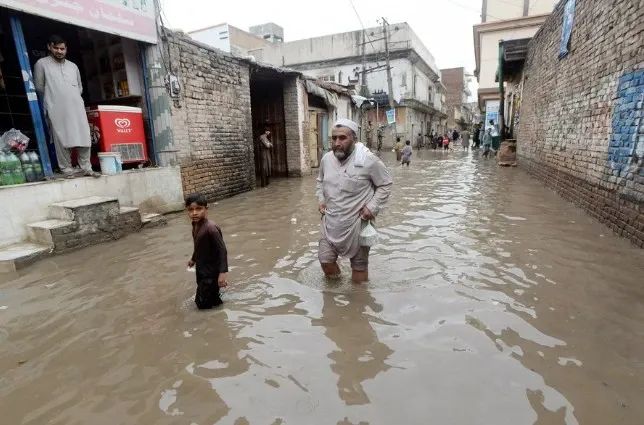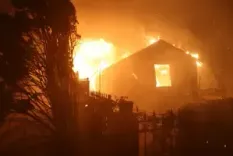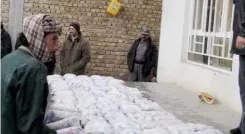Why is Pakistan's provincial government ignoring clogged drains during monsoon?

Synopsis
Key Takeaways
- Failure to address clogged drains poses health risks.
- Local authorities have not acted on warnings from the Meteorological Department.
- Tragic incidents highlight the urgent need for repairs and maintenance.
- Public funds allocated for maintenance are being mismanaged.
- Accountability for negligence remains elusive.
Sindh, July 14 (NationPress) The provincial government of Pakistan has not taken effective measures to address the issue of clogged stormwater drains, sewer lines, and gutters across Sindh. This negligence has left many areas inundated, even with the Meteorological Department announcing a new monsoon forecast set to commence on July 15, as reported by local media.
Residents of Hyderabad in Sindh are deeply worried about the primary drains in densely populated districts being obstructed by waste, and the damaged or absent protective walls along these drains remain unrepaired. This situation has been highlighted by the Pakistani daily, The Express Tribune.
The Meteorological Department had previously warned the Sindh government of the impending rainfall, leading to high-level discussions with commissioners and local municipal agencies to prepare for potential urban flooding.
Furthermore, on July 10, the Sindh Local Government Department issued a directive for municipal bodies, including the Hyderabad Municipal Corporation and various town municipal corporations, to take preventive actions. However, over 48 hours later, no department has made any ground-level preparations.
Reports indicate that the major drains in the city, such as the one connecting Liaquat Colony and Sattar Shah Graveyard to Memon Hospital Chowk and Tando Yusuf, which serve as the main sewage outlet for numerous crowded neighborhoods, are significantly blocked with debris.
In certain locations, garbage has piled up over the drains, creating a hazardous environment where children unknowingly walk over it.
There are areas where the water level in the drain rises to match the road surface, leading to past incidents involving vehicles and children falling in.
In a tragic incident in May, a seven-year-old boy, Raheel Afzal, drowned after falling into an open drain.
Similarly, last month, two girls, 10-year-old Rabeel and 8-year-old Parisha, lost their lives after falling into an uncovered drain in the Jani Shah Mohalla area.
Critics contend that despite these recurring tragedies, the Hyderabad administration, the municipal corporation, and respective TMAs (Town Municipal Administrations) have failed to take necessary actions to repair the broken protective walls surrounding these hazardous drains.
Despite receiving Rs 1.2 million monthly in government funding, the responsible Union Committees have ignored the escalating situation. The funds have remained unutilized for crucial community requirements like drain maintenance after covering salaries and utility bills.
Ironically, every year, the Sindh government and local authorities hold emergency meetings and announce rain preparedness strategies, allocating millions in the budget for this purpose.
However, in practice, not a single drain has been adequately cleaned, with fraudulent bills submitted in the name of drain maintenance each year, resulting in the misappropriation of public funds.
Moreover, no institution or bureaucrat has been held accountable for this ongoing negligence, as reported by the media.









